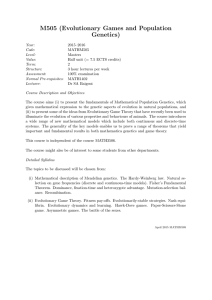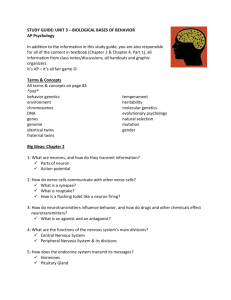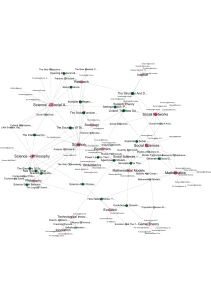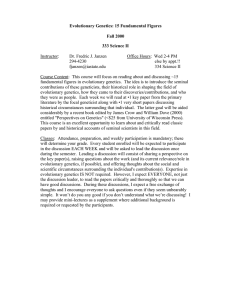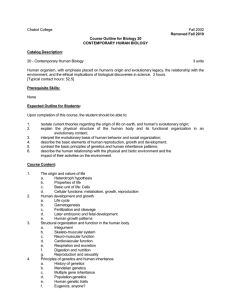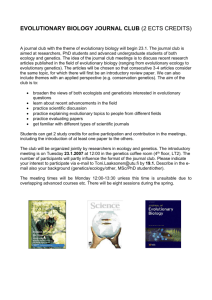G505 (Evolutionary Games and Population Genetics)
advertisement
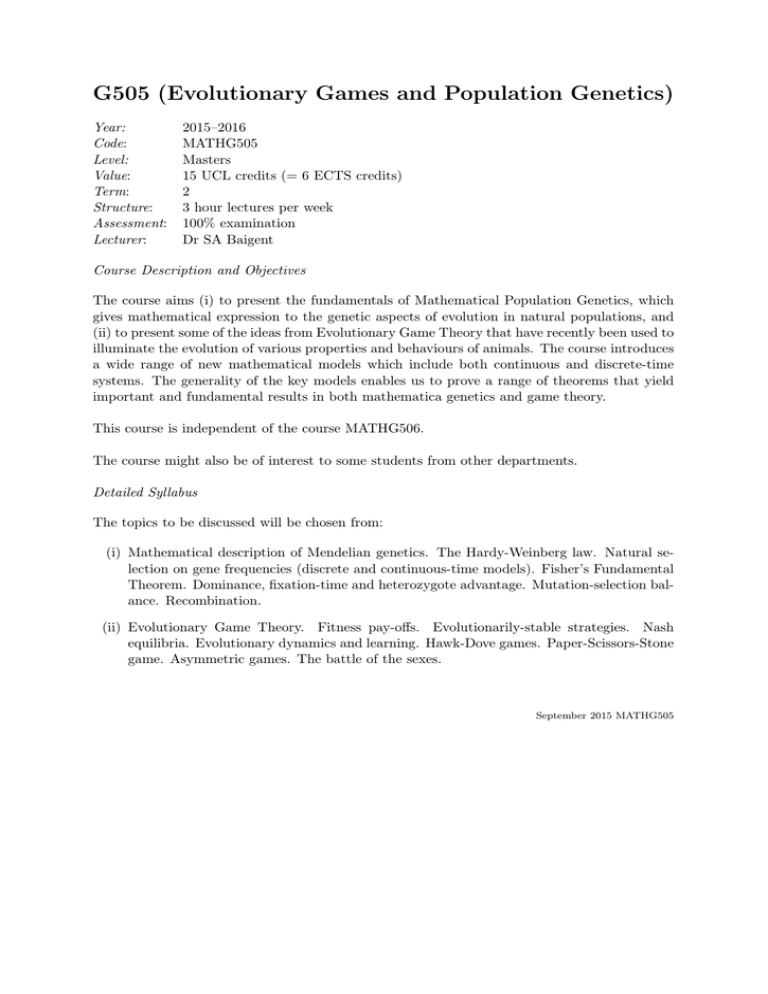
G505 (Evolutionary Games and Population Genetics) Year: Code: Level: Value: Term: Structure: Assessment: Lecturer: 2015–2016 MATHG505 Masters 15 UCL credits (= 6 ECTS credits) 2 3 hour lectures per week 100% examination Dr SA Baigent Course Description and Objectives The course aims (i) to present the fundamentals of Mathematical Population Genetics, which gives mathematical expression to the genetic aspects of evolution in natural populations, and (ii) to present some of the ideas from Evolutionary Game Theory that have recently been used to illuminate the evolution of various properties and behaviours of animals. The course introduces a wide range of new mathematical models which include both continuous and discrete-time systems. The generality of the key models enables us to prove a range of theorems that yield important and fundamental results in both mathematica genetics and game theory. This course is independent of the course MATHG506. The course might also be of interest to some students from other departments. Detailed Syllabus The topics to be discussed will be chosen from: (i) Mathematical description of Mendelian genetics. The Hardy-Weinberg law. Natural selection on gene frequencies (discrete and continuous-time models). Fisher’s Fundamental Theorem. Dominance, fixation-time and heterozygote advantage. Mutation-selection balance. Recombination. (ii) Evolutionary Game Theory. Fitness pay-offs. Evolutionarily-stable strategies. Nash equilibria. Evolutionary dynamics and learning. Hawk-Dove games. Paper-Scissors-Stone game. Asymmetric games. The battle of the sexes. September 2015 MATHG505
